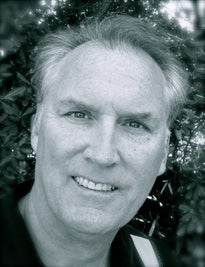John Klug
“The knowledge developed here will help people of all nations - especially those with learning differences - participate more fully in the building of a better world.”
— John Klug

Several years ago, [MIT OpenCourseWare Director of External Relations] Steve Carson joined me on my radio show, Building A Better World, to share the great story of OCW and the international movement that was following in its wake.
At the time, I was highly aware of the growing contingent of American high school students disconnecting from education, and felt higher education needed to be more responsible – along with our local communities – in developing better ways to capture and spur on our national youth’s imagination, vision and focus.
By opening their courses to the world-at-large, MIT invited the general public into a spacious global living room (with many windows and myriad views) where great dialogues and teachings were taking place, and where concentrated knowledge was now available.
By deciding to become an OCW supporter, I created a little challenge for myself: find an empowering course that directly relates to my 20-year focus on global economic development.
It took some time with 1900 premier courses to cover! But one course stood out by far to me: MAS.962, Autism Theory and Technology by Rosalind Picard, Founder/Director of the Affective Computing group in the MIT Media Lab.
Why would this course, focused on developing technologies to help people with Autism lead normal lives, be a global game-changer? Because the future can be found in it. It speaks about what the next economy – the economy of the global knowledge age – will look like: individuals from vastly different educational and learning backgrounds working respectfully with one another on the same challenge.
Do yourself a favor: check out the wonderful video included in the first session for this course, In My Language.
This course is where I plant my flag and say, from my 20 years of experience in economic development and an inkling of what’s on the horizon, that the future of global economic development is going to be built by making a way for people – especially those who learn differently – to become a more central part of the global economic opportunity.

